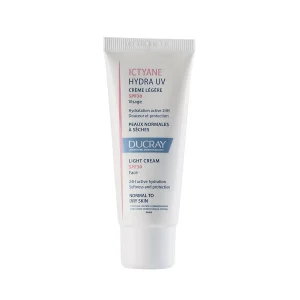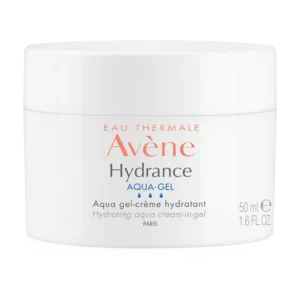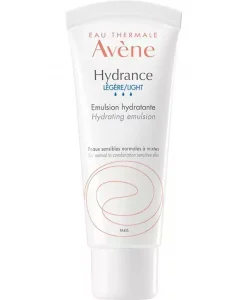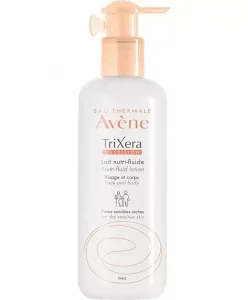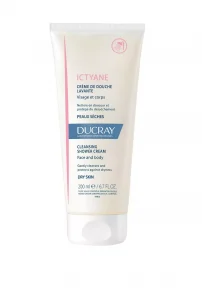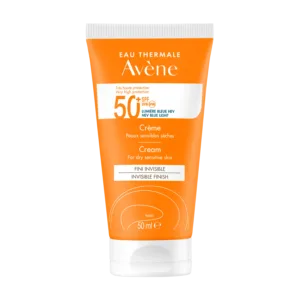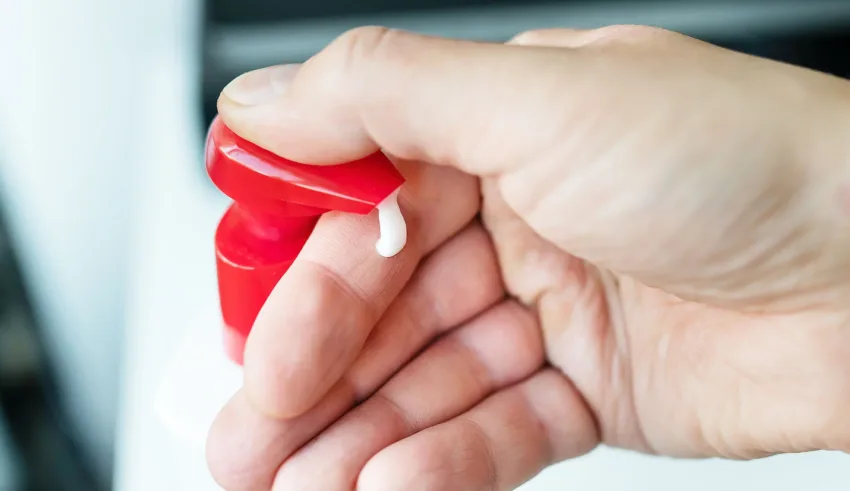
Cold air, dry indoor heat, low humidity levels, and strong winter winds can all rob your skin of moisture. As a result, your skin can look much less radiant than usual – not just your face, but your hands, feet, and so on. Even what makes winter wonderful, like sitting by a roaring fire, can dry out your skin.
Fortunately, there are many ways to combat winter’s effect on your skin and keep you moist and supple all season long, including making a few easy changes to your daily routine. Read on to discover Dr. Said El Deib’s 10 simple tips for glowing winter skin.
What are the signs of dry skin?
The most common signs and symptoms of dry skin are
- flaking or peeling
- redness
- rough texture
- itching
- raw, irritated skin
- cracks in the skin
- tingling or burning
The medical term for dry skin is xerosis. Symptoms can vary in severity, and manifest themselves differently depending on the area of the body affected.
Why is your skin so dry in winter?
According to Dr. Said El Deib, winter can be hard on your skin for several reasons:
- The air tends to be drier during the colder months. As temperatures drop, the air loses moisture, and indoor heating systems can contribute to dryness.
- People often take hot showers to escape the cold, but hot water can strip your skin of its natural oils, promoting dryness.
He explains that the cold can affect your skin’s barrier function. The skin’s most superficial layer, the stratum corneum, is responsible for retaining moisture and protecting the skin from external elements. In cold weather, this layer can be compromised, allowing moisture to escape and irritants to penetrate. In addition, wind can contribute to skin dryness by removing protective oils from the skin’s surface.
What are the differences between dry skin and other skin conditions exacerbated by winter weather?
Dr. Said El Deib explains the differences between dry skin and other skin conditions affected by cold weather:
- Dry skin:
Cause: Insufficient skin hydration, often due to low humidity, hot showers, or harsh soaps.
Symptoms: Itching, rough, or scaly skin, sometimes red or irritated.
- Eczema (atopic dermatitis) :
Cause: Genetic and environmental factors play a role. Triggers can include cold, dry air, irritants, allergens, and stress.
Symptoms: Red, itchy, inflamed skin, often with patches that may ooze or run. Common in flexural areas such as elbows and knees.
- Psoriasis:
Cause: Autoimmune condition in which the immune system mistakenly targets skin cells, resulting in accelerated skin cell turnover.
Symptoms: Red, scaly, raised patches of skin (plaques). They may be itchy or painful. Usually affects elbows, knees, and scalp.
What are the top 10 tips for healthy skin in winter?
1- Invest in a humidifier to maximize hydration
During winter, the air outside generally holds less water and is drier and colder. A humidifier in your home or office will restore moisture to the air, helping to keep your skin hydrated. Dr. Said El Deib recommends using a humidifier in your home to add moisture to the air, especially in heated indoor spaces.
2- Moisturize immediately after washing
Every time you wash your face, hands, or body, you deprive your skin of its natural oils. Since these oils help lock in moisture, it’s essential to replace them. That’s why it’s important to use a moisturizing cream every time you wash your skin, especially in winter. Dr. Said El Deib recommends using a rich, moisturizing cream to lock in moisture. Apply it just after showering or washing your face to seal in moisture.
Dr. Said El Deib advises you to look for skin care products containing these moisturizing and nourishing ingredients to combat winter dryness:
- Hyaluronic acid attracts and retains moisture, keeping skin hydrated.
- Glycerin is a humectant that draws moisture to the skin and helps maintain hydration.
- Ceramides are lipids that help form the skin barrier, preventing moisture loss.
- Shea butter is a rich, emollient ingredient that deeply moisturizes the skin.
- Antioxidants (vitamins E and C) protect the skin from environmental damage and promote skin health.
- Jojoba oil, olive oil.
Moisturizers particularly suited to dry winter skin include the following:
For the face:
Ducray Ictyane Hydra UV Light Face Cream SPF 30
To be applied only in the morning.
Eau Thermale Avène Hydrance Aqua-Gel
To be applied in the morning and evening.
Eau Thermale Avène Hydrance Light Hydrating Emulsion
To be applied in the morning and evening.
For the body:
Ducray Ictyane Hydrating Body Lotion
Eau Thermale Avène TriXera Nutrition Nutri-Fluid Lotion
3- Reduce water temperature for showering and hand washing
Long, hot showers may seem like a good idea when it’s cold and windy, but very hot water can dry out your skin.
You should also avoid using water that’s too hot to wash your hands. This is especially true if your hands tend to be red, scaly, and itchy. Dry skin caused by exposure to hot water or cool winter air can trigger a flare-up of eczema.
Cold water seems to be just as effective as hot water in eliminating germs and is less irritating to your skin.
4- Opt for gentle, fragrance-free body cleansers
When bathing, bar soaps can aggravate dryness by removing the skin’s natural oils and disrupting the microbiome.
For people with dry skin, look for cleansers labeled “for sensitive skin” or “dye-free” and “fragrance-free”. They often contain fewer drying ingredients and more moisturizing ones, such as hyaluronic acid, ceramides, oils, shea butter, and oats. “Fragrance-free” products may contain chemicals that neutralize odor and can cause irritation.
Our picks :
Ducray Ictyane Cleansing Shower Cream
Eau Thermale Avène TriXéra Nutrition Nutri-Fluid Cleansing Gel
5- Apply sunscreen daily
With winter days shorter and the sun less present, it can be tempting to exclude sunscreen from your morning routine – but think again. Even in winter, harmful UV rays can still assault your skin’s moisture barrier, which is vital for maintaining skin health and hydration.
Try adding a layer of sunscreen every morning after applying moisturizer.
Our pick:
Eau Thermale Avène Very High Protection Cream SPF50+
6- Go easy on exfoliants and scrubs
Exfoliation, which removes dead cells from the skin’s surface, can help keep skin smooth and radiant. But it’s possible to over-exfoliate your skin if you do it too often or use the wrong products.
If your skin is dry or flaky, you can opt for a gentle chemical exfoliant rather than a physical scrub. More aggressive exfoliants containing large particles are more likely to break down your skin’s moisture barrier and damage it.
If your skin is cracked, raw, or irritated, it’s best to avoid exfoliation until your skin has healed.
7- Moisturize from the inside out
Another key step in keeping skin healthy and glowing is to make sure you stay well-hydrated throughout the day. Not absorbing enough fluid can affect the appearance of your skin and make it more vulnerable to drying out.
In addition to staying well hydrated, you can also focus on eating foods rich in antioxidants and omega-3 fatty acids.
These two nutrients can protect your cells from environmental damage and help your body build healthy cells, including skin cells.
8- Choose non-irritating fabrics
A good rule of thumb for any skin problem is to avoid wearing harsh materials. Dry skin is no exception. If your skin is very dry, try to wear loose, comfortable, natural fabrics to reduce the risk of further physical irritation.
Also, avoid washing your clothes with ordinary detergents. Look for detergents formulated for sensitive skin, which are likely to be free of harsh chemicals and fragrances.
9- Wear gloves
Gloves are the ultimate physical barrier against environmental agents that can dry out the skin on your hands.
To protect your hands, wear warm gloves when out in the cold, and use a pair of silicone gloves when washing dishes.
By limiting the contact of dry air and hot water with your skin, you’ll help keep your hands soft and moisturized.
10- Never, ever scratch.
Most of the time, a moisturizing cream can control the itching. You can also use a cold pack or compress to relieve itching.
A final word on winter’s effect on your skin
Dry, flaky skin is not uncommon in winter, not only on the face but also on hands, feet, and other areas exposed to the elements.
To keep skin healthy, it’s essential to moisturize frequently with suitable products. It’s also important not to overuse scrubs, hot water, and other skin care products. Using a humidifier, wearing non-irritating fabrics and gloves, and staying well hydrated can also help protect your skin.
Dr. Said El Deib points out that consistency is key. By adopting a regular skincare routine and being attentive to your skin’s needs, you can keep it healthy and hydrated throughout the winter months.
If you find that your dry skin doesn’t improve, consider consulting your healthcare provider for the right treatment.
